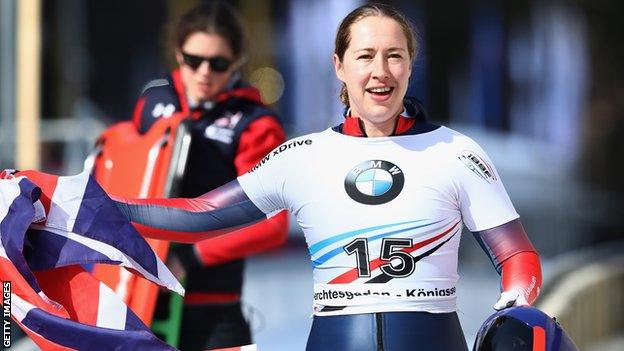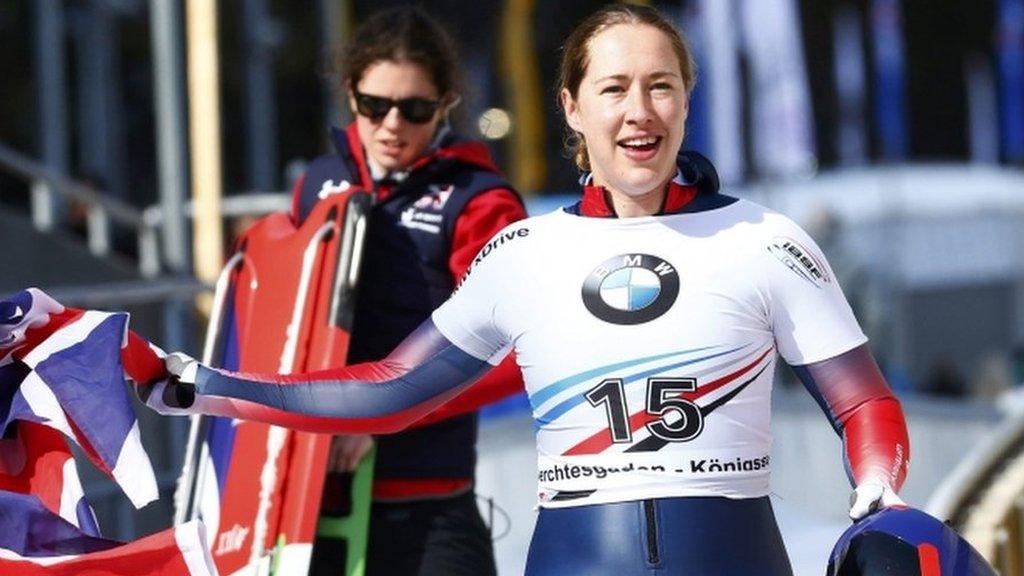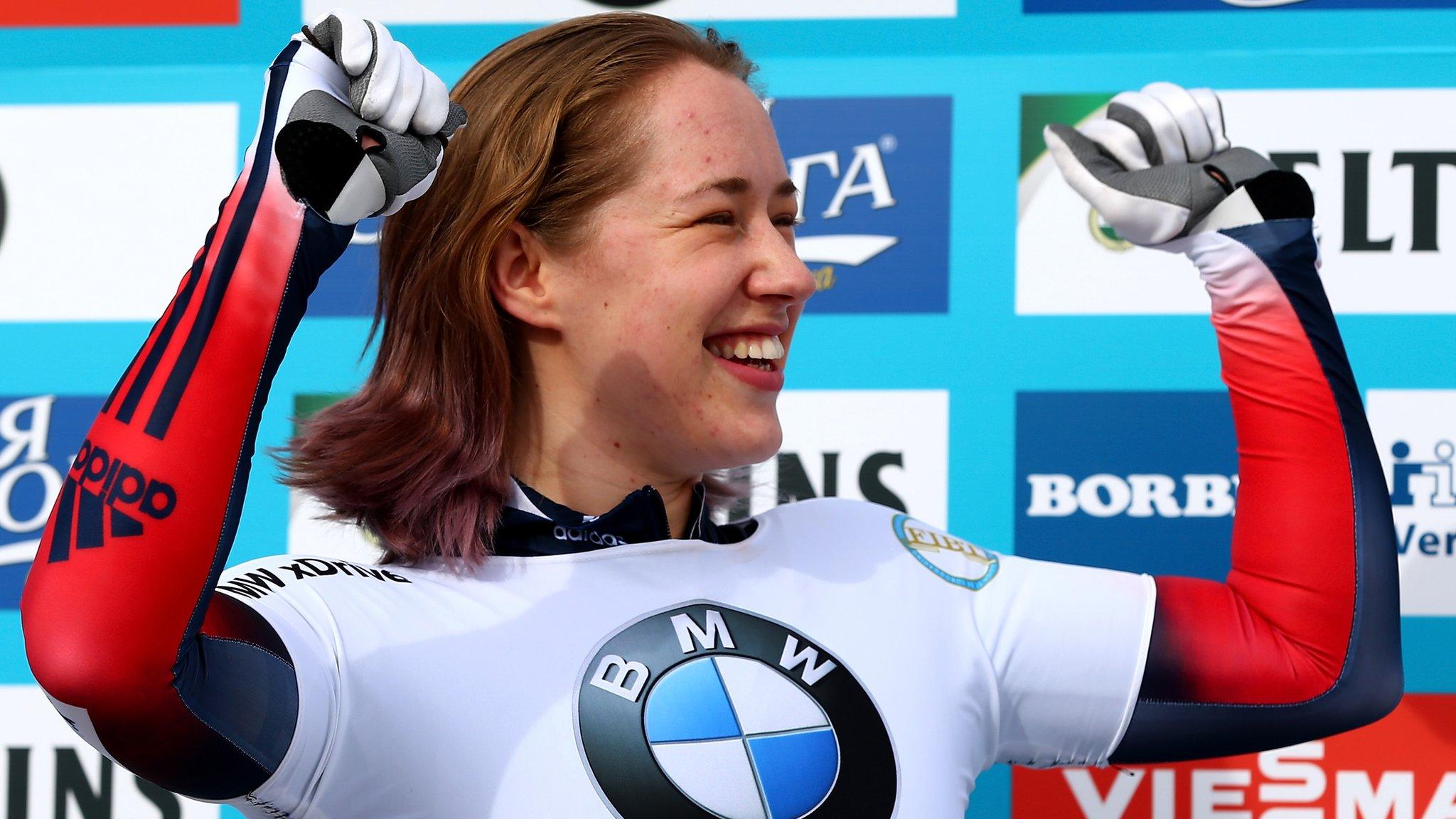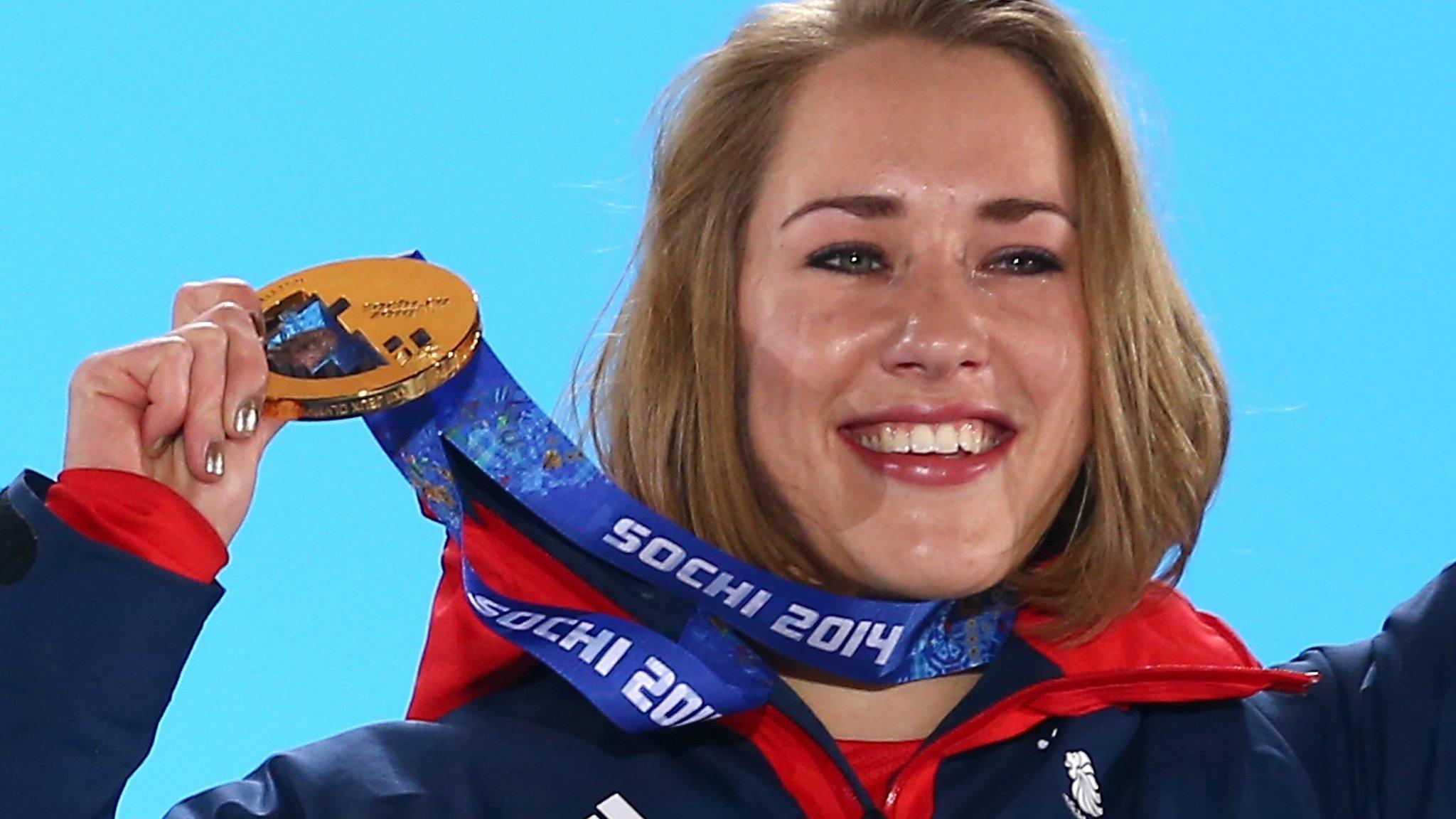Lizzy Yarnold: Olympic skeleton champion criticises omission of Russians from anti-doping checks
- Published

Yarnold won gold in the women's skeleton at the 2014 Winter Olympics in Sochi
Britain's Lizzy Yarnold has criticised the International Bobsleigh and Skeleton Federation (IBSF) for failing to include any Russian skeleton athletes on the anti-doping checklist.
The IBSF has named 35 sliders in its registered testing pool who must commit to regular anti-doping checks during the Winter Olympic season.
Yarnold, 28, is one of three Britons in the 11 athletes selected from skeleton.
"I don't understand why there are three GB athletes and no Russians," she said.
"The system is crucial in our fight against doping and I think the IBSF should expand the testing pool."
The 2014 Olympic skeleton champion also said on Twitter:, external "2017-18 list of athletes on anti-doping whereabouts published. Olympic season and no Russian athletes?"
The World Anti-Doping Agency's Anti-Doping Administration and Management System (ADAMS) requires athletes to guarantee their whereabouts for one hour per day of the programme's duration.
The second McLaren report published in December alleged "a state-sponsored doping programme" in Russia and implicated medalists at the 2014 Winter Olympics in Sochi.
Following the report, four Russian skeleton athletes were provisionally suspended by the IBSF but had their bans lifted in January.
In November last year, Yarnold said she was thinking about boycotting the 2017 Skeleton World Championships in Sochi following the claims.
But she won bronze at the event held in Germany after the IBSF was forced to move the games from Sochi to Konigssee due to ongoing concerns over the integrity of the sport in Russia.
Yarnold wins bronze at Skeleton Worlds
- Published25 February 2017

- Published23 February 2017

- Published1 November 2016
